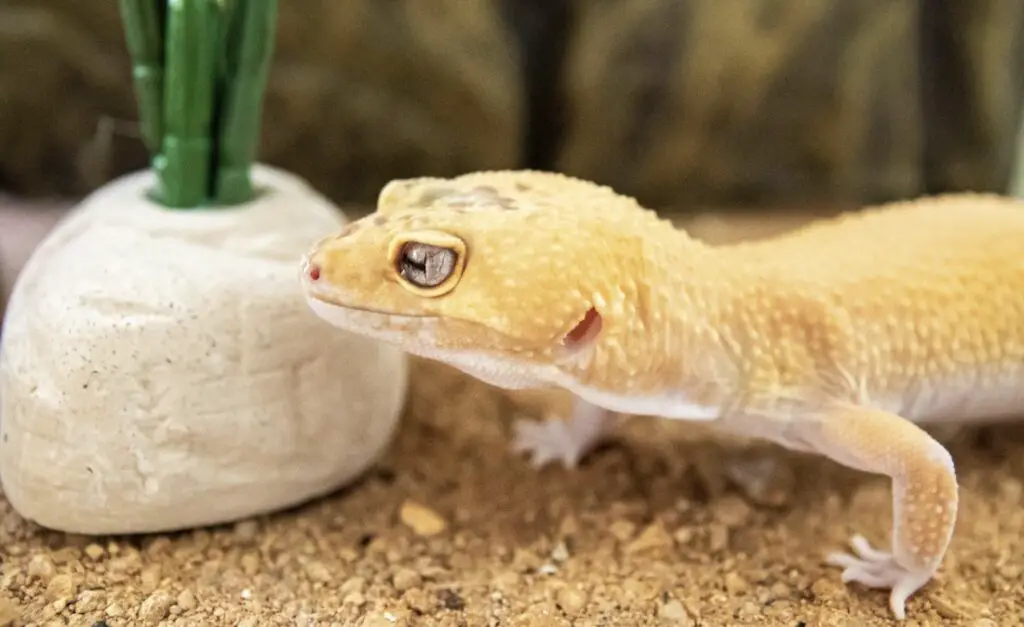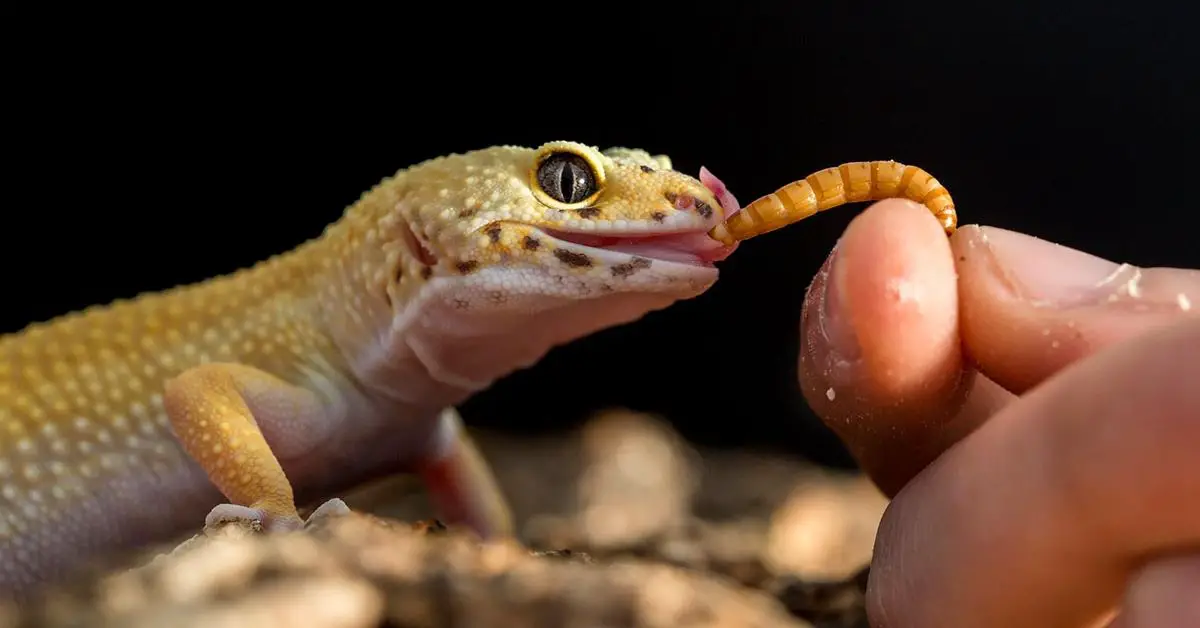Leopard geckos are one of the most popular reptile pets due to their docile nature, ease of care, and fascinating behavior. As responsible pet owners, it is crucial to understand the nutritional requirements of these charming creatures. One common concern that arises in every owner’s mind is, how long can a leopard gecko go without eating?
Leopard geckos are known for their hardiness and ability to go without food for extended periods. However, the maximum time a gecko can survive without food depends on various factors such as age, health condition, environmental temperature, and stress levels. In this article, we will dive deep into the topic and provide you with valuable insights on how to make sure your little companion stays healthy and happy.
Understanding the Dietary Habits of Leopard Geckos
Leopard geckos are one of the most fascinating reptiles because of their unique dietary habits. These geckos are insectivores, meaning they feed solely on insects, and their diet is mainly based on crickets, mealworms, super worms, and wax worms. In the wild, leopard geckos hunt and eat at night, when their prey is most active.
Leopard geckos require a balanced diet that consists of a variety of insects to meet their nutritional needs. They need protein for muscle growth and repair, calcium for bone development, and other essential vitamins and nutrients to maintain good health.
Feeding leopard geckos can be tricky, especially for new pet owners. Overfeeding or feeding them the wrong type of insects can lead to obesity, digestive problems, or malnutrition. It’s essential to keep their diet varied, and the live prey should be dusted with a calcium supplement to prevent any deficiencies.

Moreover, leopard geckos can go for several weeks without eating. However, this is not ideal for their health. When they go without food for too long, they may lose weight, become lethargic, and even die. Therefore, it’s essential to monitor their eating habits and ensure they are eating enough.
Finally, providing fresh, clean water is also essential for leopard geckos to stay hydrated, healthy, and active. Understanding the dietary habits of leopard geckos is crucial to keeping them healthy and happy. With the right care and attention, leopard geckos can live up to 15 to 20 years in captivity.
Factors that Affect the Feeding Frequency of Leopard Geckos
Leopard geckos are fascinating creatures that live up to 20 years in captivity. One of the most important factors in ensuring the longevity of your pet is its diet. But how often should you feed your leopard gecko? There are several factors that affect the feeding frequency of leopard geckos.
Firstly, the age of your leopard gecko plays a significant role in how often it should be fed. Young geckos should be fed every day, while adult geckos can be fed every other day or every three days.
Secondly, the size of your leopard gecko determines the amount of food it needs. Larger geckos require more food than smaller ones.
Thirdly, the type of food you give your leopard gecko affects its feeding frequency. Insects such as crickets, mealworms, and roaches should be fed to leopard geckos every two to three days.
Fourthly, the temperature of your leopard gecko’s environment affects its metabolism and feeding habits. A warm environment with a temperature range of 80-85°F during the day is optimal for leopard geckos. In colder temperatures, your gecko’s appetite will decrease.
Ultimately, it is important to observe your leopard gecko’s feeding habits and adjust their feeding frequency accordingly. Overfeeding or underfeeding can lead to health issues, so it is crucial to find a balance that suits your gecko’s needs. Consult your veterinarian if you are uncertain about your leopard gecko’s feeding habits.
You may also like: How To Tell If Leopard Gecko Is Stressed?
How Often Should You Feed Your Leopard Gecko?
In order to keep your leopard gecko healthy and happy, it’s important to feed them properly. These reptiles have a specific diet that should be followed to keep them nourished.
Firstly, leopard geckos should be fed every other day. This means that they should have a day of fasting in between feedings. It’s also important to note that leopard geckos need to eat live insects in order to get the nutrients they need. Some common insects that are safe to feed your leopard gecko include crickets, mealworms, and waxworms.
When feeding your leopard gecko, you should make sure to provide them with the appropriate amount of insects. Typically, a leopard gecko will only eat as much as they need, so if you notice any leftover insects in their tank, you may be overfeeding them.
In addition to feeding your leopard gecko insects, it’s important to make sure they have access to clean water at all times. You can provide them with a shallow dish of water or invest in a water dispenser specifically made for reptiles.
Lastly, it’s important to vary your leopard gecko’s diet and give them a variety of insects to eat. This will ensure that they are getting all the nutrients they need to stay healthy. With these tips in mind, you can ensure that your leopard gecko is getting the proper nutrition they need to thrive.
Signs that Your Leopard Gecko Might be Malnourished
A properly fed leopard gecko can live for a relatively long period without food. However, it’s still crucial to watch out for signs of malnourishment because they can lead to numerous health complications and eventually result in death. Some of the signs that your leopard gecko might be malnourished include lethargy or reduced activity levels.
If your gecko appears increasingly sluggish and less active than usual, it could be an indication that they are not getting enough food. Additionally, if your gecko is losing weight, it could be another indicator that they are malnourished. Weight loss can be more noticeable along the tail, which may appear thinner than usual.
Another sign of malnourishment is a decreased appetite. If your gecko suddenly loses interest in food, it could be an indication that they are not getting essential nutrients. Moreover, a dull, faded-looking skin may suggest a lack of important vitamins and minerals.
Finally, if your gecko’s eyes appear sunken in, it could be a sign of dehydration, which is also a symptom of malnourishment. As a responsible pet owner, it’s vital to keep an eye out for any warning signs that your leopard gecko may be malnourished and take action as soon as possible to prevent further complications.
Recommended Reading: Can Cats Eat Geckos?
Coping with Your Leopard Gecko’s Appetite Loss
Coping with your leopard gecko’s appetite loss can be a stressful experience, especially for first-time owners. However, it’s important to remember that appetite loss is a common occurrence in leopard geckos and can be triggered by various factors such as illness, stress, or environmental changes.
The first step in coping with your leopard gecko’s appetite loss is to assess the possible causes. Make sure that there are no issues with the temperature, humidity, or lighting in your gecko’s enclosure. Also, check for any signs of illness such as lethargy, diarrhea, or respiratory distress.
If you’ve ruled out any environmental or health issues, it’s important to try to encourage your gecko to eat. Offer a variety of food items such as crickets, mealworms, waxworms, or silkworms. Also, consider offering a small amount of baby food or calcium powder on the food to entice your gecko.
Another way to help your leopard gecko overcome appetite loss is by providing a stress-free environment. Avoid handling your gecko excessively and make sure that its enclosure is kept in a quiet area away from any loud noises or sudden movements.
Finally, if your leopard gecko’s appetite loss persists, it’s best to consult with a veterinarian who specializes in reptiles. They can help identify any underlying medical issues and provide the best treatment plan for your gecko.
The Dangers of Overfeeding Leopard Geckos
It’s easy to fall into the trap of overfeeding your leopard gecko, especially when they are such voracious eaters. However, overfeeding can be incredibly dangerous for your pet.
Firstly, overfeeding can lead to obesity, which can cause a range of health problems such as respiratory issues, digestive problems, and joint problems. This can greatly affect your leopard gecko’s quality of life and may even shorten their lifespan.
Secondly, overfeeding can cause impaction, where undigested food builds up in the digestive system, causing an obstruction. This can be incredibly painful and even fatal in some cases.
Thirdly, overfeeding can lead to nutritional imbalances that can affect your leopard gecko’s health in the long run. Feeding them a well-balanced diet in moderation is crucial for their overall well-being.
Finally, overfeeding can lead to a decrease in appetite, as their digestive system becomes overloaded and overwhelmed. This can create a cycle of overfeeding and underfeeding, which can cause a range of health problems.
Overall, it’s important to feed your leopard gecko in moderation and ensure they have access to fresh water and a well-balanced diet. By doing so, you can avoid the dangers of overfeeding and ensure your pet’s health and happiness.
More to Explore: Do Crested Geckos Need Live Food?
Long-Term Consequences of Starvation in Leopard Geckos
Long-term consequences of starvation in leopard geckos may vary depending on the severity and duration of the starvation. In mild cases, a leopard gecko may appear to be healthy after being starved for a short period of time. However, prolonged starvation can lead to significant health issues.
One of the most obvious consequences of long-term starvation in leopard geckos is weight loss. As a result, the animal may become weak and have a hard time hunting for food once it becomes available. Additionally, long-term starvation can cause metabolic disorders and weaken the immune system, making the animal susceptible to infections and diseases.
If the leopard gecko is not appropriately treated and provided with food, water, and supplements, it may develop liver and kidney diseases, which can be fatal. Starvation can also cause neurological problems, leading to seizures or other issues with the nervous system.
In conclusion, the consequences of starvation in leopard geckos can be severe, and it can impact the animal’s health and wellbeing in the long term. Therefore, it is crucial to provide these creatures with enough food and water to ensure they thrive and maintain their health for a long time.
Conclusion
To summarize, leopard geckos are hardy creatures that can go without eating for extended periods of time. While it is not recommended to starve them intentionally, as it could lead to health issues, it is common for them to fast occasionally. The duration of the fast can vary depending on the age, health, and environmental conditions of the gecko.
It is important for owners to monitor their leopard gecko’s appetite and provide them with a balanced diet to maintain their health. If a gecko goes unexpectedly long without eating, it may indicate a medical issue that requires attention. With proper care and attention, leopard geckos can live long, healthy lives and thrive in captivity.
Further Reading: How Many Dubia Roaches For Leopard Gecko?

